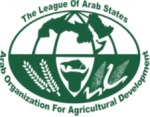Armed actors, including militaries and paramilitaries, are heavily entrenched in the agrifood systems of several low- and middle-income countries, often resulting in negative implications for both agricultural transformation and democratic transitions. However, the role of armed actors is overlooked in the scholarship on the governance of agricultural value chains. To address this gap, this paper focuses on the role of the Sudanese Armed Forces (SAF) and Rapid Support Forces (RSF) in Sudan's agrifood system. Through over 50 semi-structured interviews with key stakeholders, the paper traces how the SAF and RSF initially gained their foothold in the agrifood system and how they interact with each other, and the private sector across diverse value chains. We argue that these actors decide to pursue investments in certain value chains depending on the extent to which the private sector is already involved and the degree of technical complexity required to attain more profitable product upgrading. Based on these considerations, we uncover four strategies used by SAF and RSF in different value chains: exclusive capture and rent extraction, competition through biased licensing and quota allocations, acquiescence to existing private competitors when value-addition is too complex, and innovation when potential is high and the private sector is absent. We show how these strategies manifest across value chains as diverse as livestock, wheat, gum Arabic, and horticulture, with secondary applications to other commodities. Given that economic competition between SAF and RSF was a major factor in the outbreak of the 2023 armed conflict, identifying how these strategies emerged and manifested not only contributes to the literature on business-state relations but also expands insights about the political economy antecedents of large-scale conflict.
Read the full paper here
